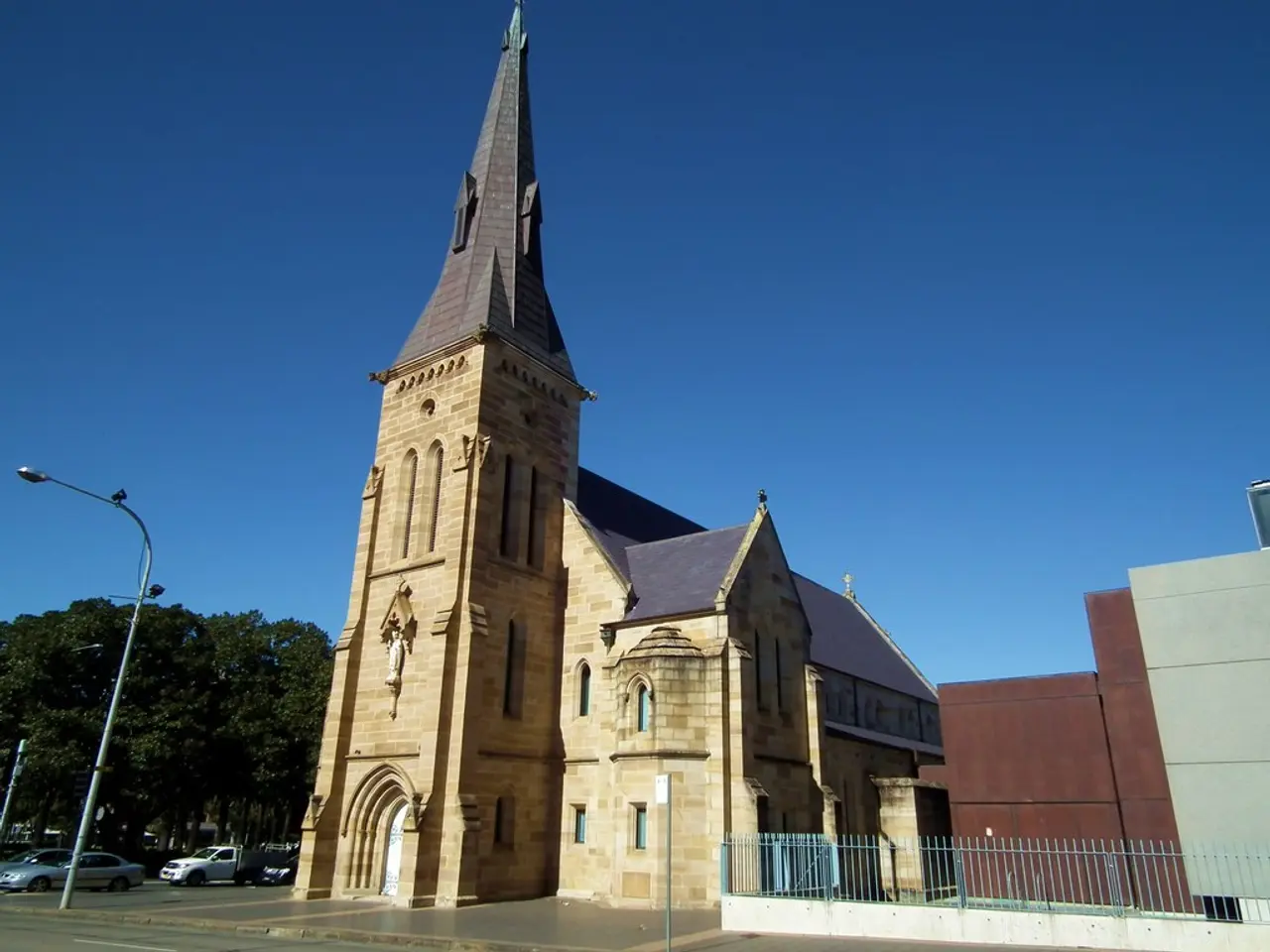Residential Street Named Wolves Lane
In the heart of Wood Green, North London, a former council nursery has been reborn as the Wolves Lane Centre - a vibrant community hub dedicated to food growing, horticultural education, and cultural events. This remarkable transformation was made possible by the collaborative efforts of Material Cultures and Studio Gil architects, working alongside the Wolves Lane Consortium.
The project's focus on sustainability shines through in its design, with original materials retained and new ones carefully chosen to sequester carbon rather than emit it. Concrete waste from the existing site was reused in foundations, excavated clay was used as plaster, and straw bales from a nearby farm were incorporated as insulating fill. The buildings feature lightweight timber frames, designed for thermal mass and insulation, to minimize energy needs. Renewable energy is sourced from photovoltaic solar panels, and sustainable drainage systems manage stormwater effectively, making the centre off-grid for waste water [1].
The architectural design is inclusive and promotes civic pride, serving a multi-generational cohort from young children to people of the Third Age. The hub includes low-carbon buildings set around courtyards and gardens, offering classrooms, workshops, a communal food store, a flexible community hall, and more [2].
Key parties involved in the project include the client and community partners, The Ubele Initiative & OrganicLea, architects Studio Gil and Material Cultures, contractor Work Ltd, structural engineer Tisserin, services engineer XC02, project management and quantity surveyor Jackson Coles, landscape architect JCLA, and principal designer TOCA [1].
The transformation served as a "site as classroom," embedding skills in the community for maintaining the buildings. Co-design workshops involving local residents, schools, and consortium members shaped the masterplan of the Wolves Lane Centre. The project is a living example of how bio-regional materials can be applied to an urban site, supporting the centre in building resilient communities and ecosystems [2].
Cultural initiatives such as Noperlara Sessions, a Latino-led programme, are part of the Wolves Lane Centre. The project also features permanent facilities for Black Rootz, the UK's first multigenerational Black-led growers' collective [1].
The £2.3m initiative, funded by the National Lottery Community Fund, the Mayor of London's Good Growth Fund, Haringey Council, and the Clothworkers' Foundation, has created a space that fosters community, education, and sustainable living [1][2]. The Wolves Lane Centre is now open to the public for markets, workshops, cultural events, and visits to its Cactus House, Palm House, and café.
References: [1] Wolves Lane Centre. (n.d.). About. Retrieved from https://www.wolveslanecentre.org/about [2] Wolves Lane Centre. (n.d.). Sustainability. Retrieved from https://www.wolveslanecentre.org/sustainability
- At the Wolves Lane Centre in Wood Green, North London, education plays a significant role, extending beyond horticulture to include music, culture, science, and climate-change sessions.
- The architectural design of the Wolves Lane Centre, originally a council nursery, promotes lifestyle changes supportive of sustainable living and environmental-science, while preserving home-and-garden spaces.
- As a result of the collaborative efforts between Material Cultures, Studio Gil, and the Wolves Lane Consortium, the Wolves Lane Centre offers food-growing facilities, educational workshops, and cultural events, all in the name of promoting a sustainable community.
- The Wolves Lane Centre encourages learning and self-development through its various initiatives, some of which include co-design workshops, local residents' involvement, and school partnerships.
- The diverse community that the Wolves Lane Centre serves includes people of all ages, from young children to the elderly, fostering education, creativity, and community cohesion.
- The Wolves Lane Centre, a vibrant hub funded by the National Lottery Community Fund, the Mayor of London's Good Growth Fund, Haringey Council, and the Clothworkers' Foundation, incorporates green spaces, cultural programs, and a communal food store, making it an ideal destination for residence, education, and entertainment.




